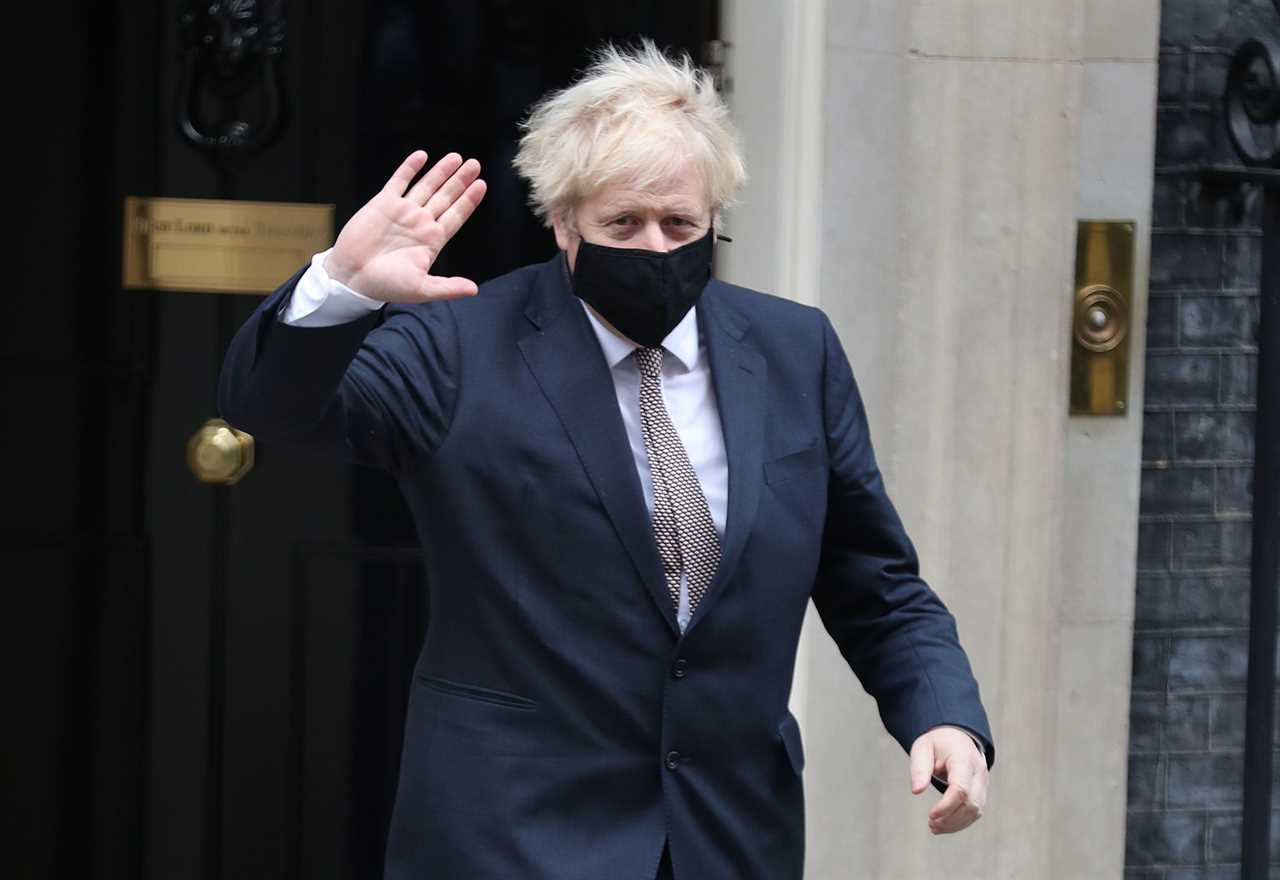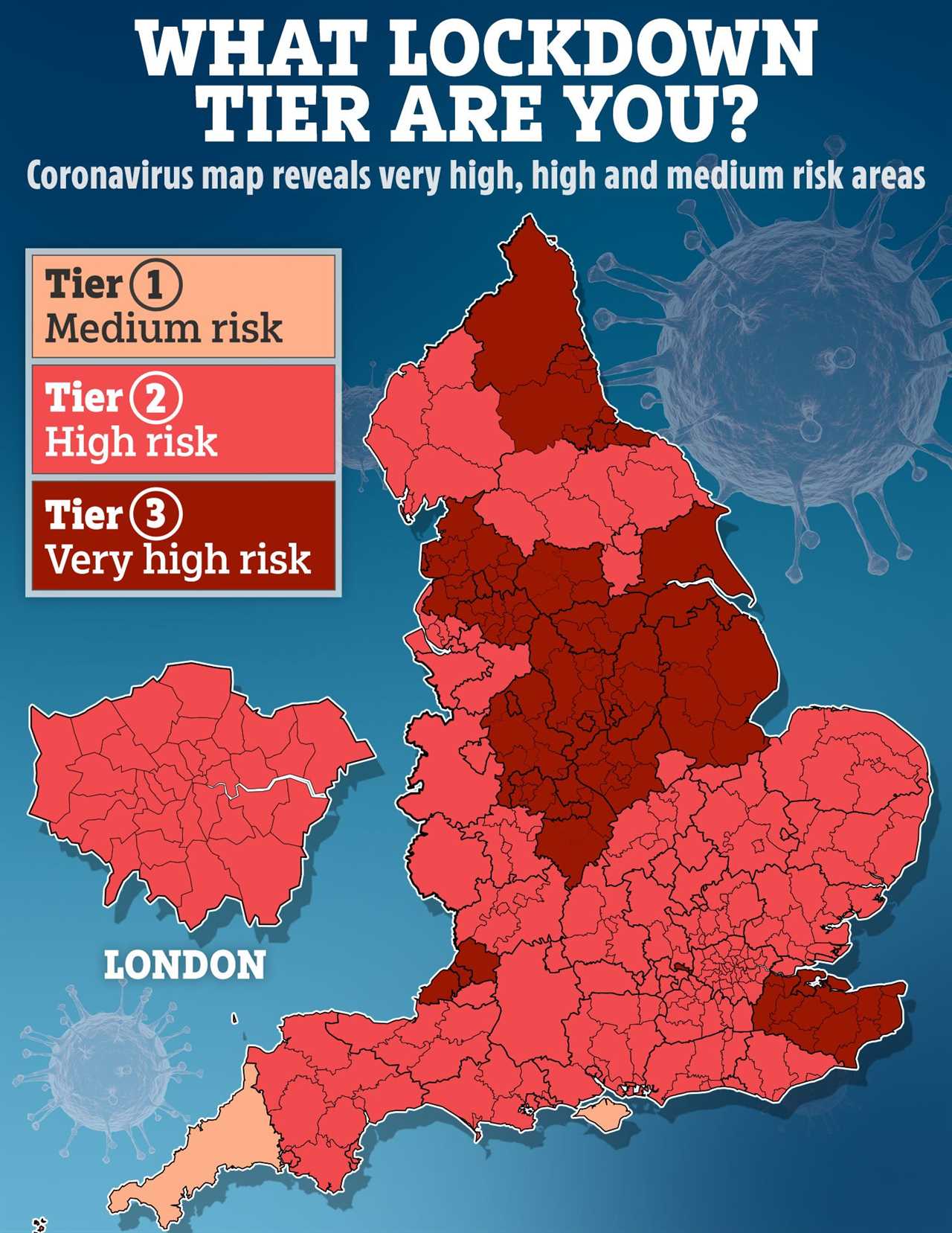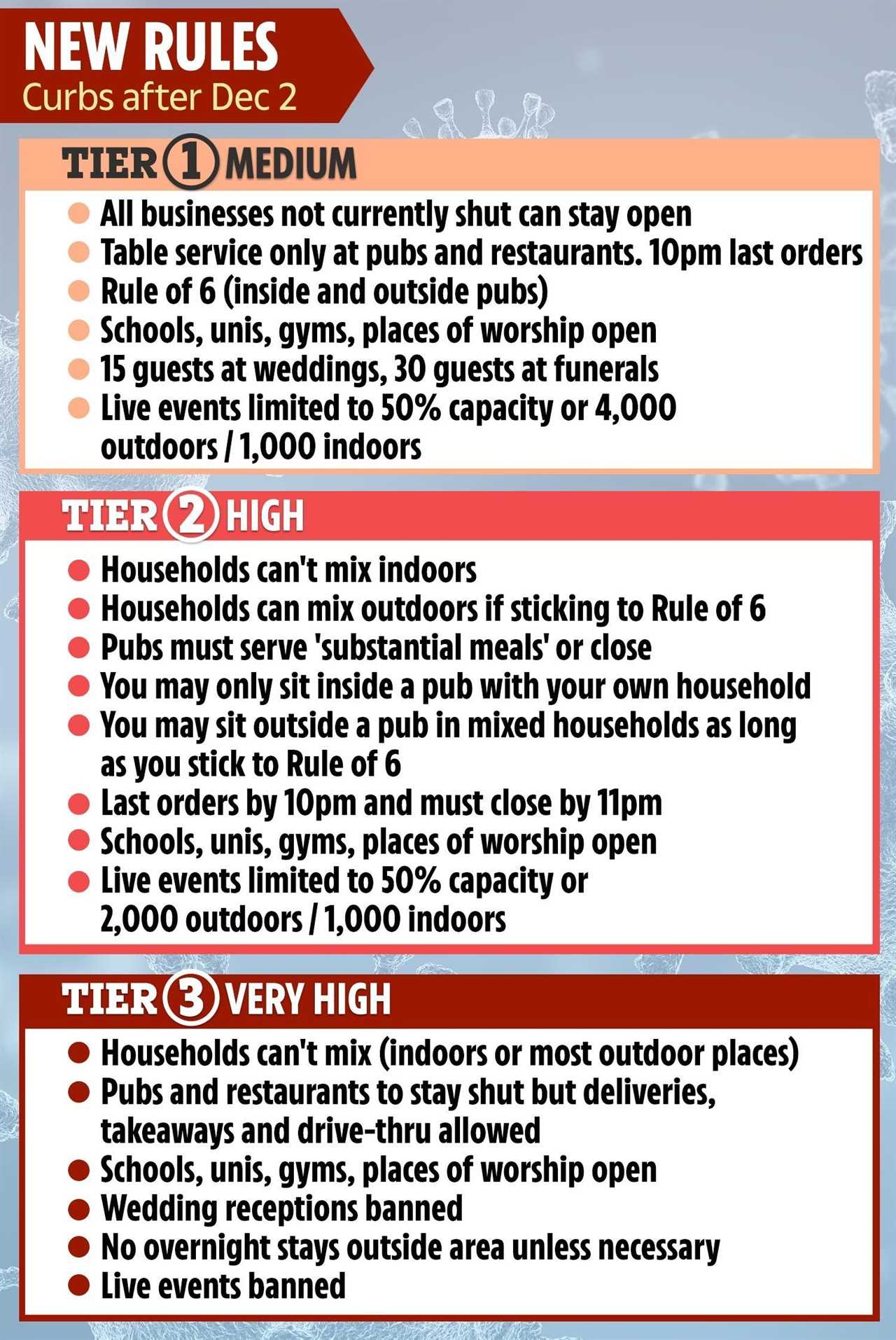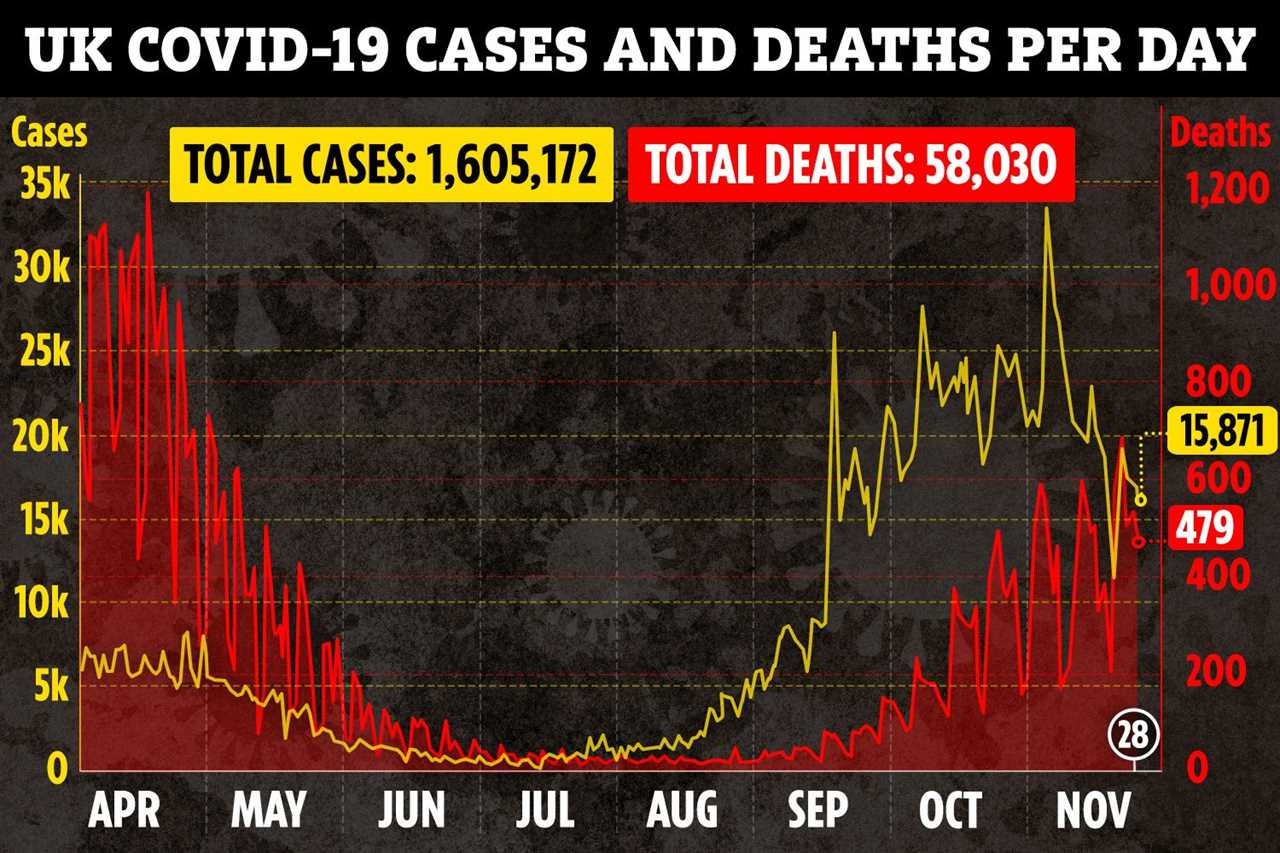THE Covid tier system could end in February as Boris Johnson desperately tries to head off a major rebellion from Tory MPs.
The PM has angered some of his party with a plan to impose tough restrictions across much of England when the national lockdown ends on Wednesday.


Boris has faced a blue wall of opposition to his proposed measures and could struggle to get them through Parliament on Tuesday.
But in a letter to colleagues on Saturday evening, Mr Johnson said the regulations would contain a “sunset clause” – or expiry date – of February 3, with MPs offered the chance to vote to extend them then.
It comes as Boris faced a growing backlash from his own MPs after Trending In The News revealed that Easter Monday had been pencilled in for lifting the tiers system.
The Government will review local areas’ tiers every fortnight and bring the regulations before Parliament after the fourth review on January 27.
The review which will determine whether the tier system stays in place until the end of March.
Mr Johnson also said the first such review, on December 16, would consider the views of local directors of public health, with a final decision on whether any areas should change tiers made at a Cabinet committee.
The changes would come into effect on December 19.
In a further olive branch to MPs, the Prime Minister committed to publish more data and outline what circumstances need to change for an area to move down a tier, as well analysis of the health, economic and social impacts of the measures taken to suppress coronavirus.
Only the Isle of Wight, Cornwall, and the Isles of Scilly will be under the lightest Tier 1 controls, while large swathes of the Midlands, North East and North West are in the most restrictive Tier 3.
In total, 99 per cent of England will enter Tier 2 or 3, with tight restrictions on bars and restaurants and a ban on households mixing indoors when the four-week national lockdown lifts on Wednesday.
BLUE WALL
Up to 100 MPs are considering opposing the Prime Minister’s plan.
The 1922 Committee chairman Sir Graham Brady said he wanted to see people “treated as adults” and trusted with their own health decisions.
He told BBC Radio 4’s Any Questions: “I find so many people have been engaged in a wholly responsible way in trying to make sure they can continue some kind of family life, some kind of social life, but being safe, being responsible throughout.
“Especially the older people, who are typically more vulnerable to Covid-19, are also the people who are likely to be most responsible.”
A leading economic think-tank has warned the system will slash England’s gross domestic product by £900million a day.
This is a 13 per cent drop compared to last December, the analysis by the Centre for Economic and Business Research (CEBR) reveals.
The figures are based on the fact 31 per cent of England’s economy will be plunged into Tier 3 when lockdown lifts, The Telegraph reports.
And bans on indoor socialising and extra rules for pubs and restaurants will be slapped on 68 per cent of the population who fall under Tier 2.
The CEBR predicted the daily loss in GDP for firms in Tier 3 is 20 per cent, while the loss in Tier 2 will be ten per cent.
Doug McWilliams, the CEBR’s deputy chairman, told the paper: “It remains to be seen whether those costs, which of course can’t take account of the longer term damage done to so many pubs, restaurants, sports and entertainments venues, is justified by the reduced incidence of the disease.
“My suspicion is that the shutdowns imposed by Whitehall will end up doing more economic damage than can be justified on medical grounds.”
The grim warning comes just days after Chancellor Rishi Sunak said the Covid pain had only just begun with this year’s virus bill hitting £280million.
Ministers had refused to reveal any details of the economic impact the new tier system could cause.
The Cabinet is now only outlining the cost to soften mounting backlash within Boris Johnson’s government.








